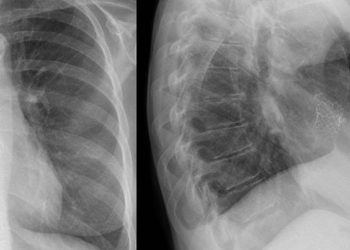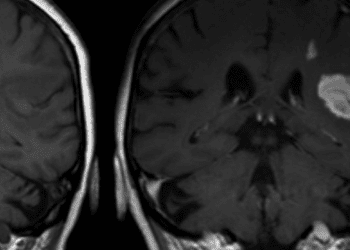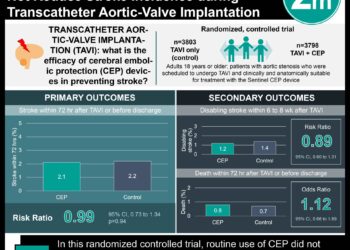2 Minute Medicine Rewind May 11 – May 17, 2015
In this section, we highlight the key high-impact studies, updates, and analyses published in medicine during the past week.
Performance Differences in Year 1 of Pioneer Accountable Care Organizations
A crucial component of the Affordable Care Act was the creation of accountable care organizations (ACOs), or systems of healthcare providers and organizations that seek to decrease healthcare costs. Compared to a financial benchmark compared to baseline care, ACOs under the Medicare Pioneer program started in 2012 shared in Medicare savings and incurred penalties if spending exceeds expectations. In this retrospective analysis, investigators analyzed the change in annual Medicare claims of the 32 ACOs in the Medicare Pioneer program and a control group in the same hospital referral region. In 2012, the first year of the Medicare Pioneer program, ACOs’ per-beneficiary spending decreased an average of $29.2 per quarter compared to the control group (p = 0.007) – a 1.2% reduction from an expected quarterly per-beneficiary spending of $2455.80. In investigators found more savings in ACOs with baseline spending higher than average in the preceding years (2009 – 2011) and in ACOs serving high-spending areas (p = 0.05 and p = 0.04). Ultimately 13 of initial 32 ACOs left the Pioneer program, citing unsustainable financial models, but there was no statistically significant difference in spending. This retrospective analysis showed the Medicare Pioneer program produced modest reductions in spending.
Care and Outcomes of Patients With In-Hospital Stroke
While there are significant efforts for early identification and treatment of stroke in the community, a sizable proportion of ischemic and hemorrhagic strokes occur in hospitalized patients. There is little literature comparing stroke care delivery and outcomes for patients with community-onset vs. in-hospital strokes. In this multicenter prospective trial, investigators examined the outcomes of 973 patients with in-hospital stroke and 28,837 patients with community-onset stroke seen in regional stroke centers in Ontario, Canada. Patients with in-hospital stroke had significantly more delay from symptom presentation to neuroimaging (4.5 hours vs. 1.2 hrs, p < 0.001, adjusted OR of imaging by 2 hours: 0.21, 95% CI 0.18 – 0.24). There was also an increased time to thrombolysis (2.0 hours vs. 1.2 hours, p < 0.001). Patients with in-hospital strokes had longer length of stay after stroke (17 vs. 8 days, p < 0.001) and were more likely to be either disabled or dead at discharge (77% vs. 65% with modified Rankin Scale score 3 – 6, p < 0.001). In this study, there appears to be significant delay in the recognition and treatment of acute in-hospital compared to community-presentation strokes resulting in worse outcomes.
Reduced muscular strength is associated with increased all-cause and cardiovascular mortality. Grip strength is an easily obtained and reproducible surrogate for muscular strength. In this prospective multinational cohort study, 139,691 participants between 35 – 70 years of age were followed for 4 years and grip strength was measured and compared with all-cause mortality and common cases of morbidity. After a median follow-up ofr 4 years, 3379 (2%) have died. Grip strength was negatively correlated with all-cause mortality (HR per 5kg reduction in grip strength: 1.16, 95% CI 1.13-1.20, p < 0.0001) and cardiovascular mortality (HR 1.17, 95% CI 1.11-1.24, p < 0.0001) as well as the risk of myocardial infarction and stroke. There was no association with diabetes, hospitalizations for COPD or pneumonia, or fracture. In high-income countries, there was a positive correlation with risk of cancer (HR 0.916, 95% CI 0.88 – 0.95, p < 0.0001). This study suggests grip strength is a cheap, easily accessible measure with good prognostic value in predicting mortality and cardiovascular disease.
Mediterranean Diet and Age-Related Cognitive Decline
Oxidative stress have been suggested to play a role in neurodegenerative diseases and age-related cognitive decline. An antioxidant-rich Mediterranean diet has been suggested in large observational trials to correlate with improved cognitive function and reduced rates of dementia. This prospective randomized trial, 447 older volunteers with cardiovascular risk factors in Barcelona were randomized to either a Mediterranean diet supplemented with olive oil (1L per week) vs. a Mediterranean diet supplemented with mixed nuts (210g per week) or a control diet restricting dietary fat. Study participants were followed for a median of 4.1 years and 334 (74.7%) of participants underwent repeat neuropsychological testing. The investigators that composite cognitive function declined from baseline in the control diet (Zscore – 0.38, 95% CI -0.57 to -0.18, p < 0.05), while there was no statistically significant change from baseline in Mediterranean diet with olive oil group (Zscore 0.05, 95% CI -0.25 to 0.31) and in the Mediterranean diet with mixed nuts group (Zscore -0.05. 95% CI -0.27 to 0.18). Although there was significant drop out of participants in this prospective randomized trial, this trial suggests a Mediterranean diet supplemented with either olive oil or mixed nuts helped delay cognitive decline.
Long-Term Effect of Gene Therapy on Leber’s Congenital Amaurosis
Leber’s congenital amaurosis is a well characterized, inherited early onset retinal degeneration disorder that can be caused by mutation sin the RPE65 (retinal pigment epithelium-specific protein 65 kDa) gene. In this prospective open label phase 1-2 trial, 12 participants between the ages of 6 and 23 years old with mutations in the RPE65 gene were given two different doses of recombinant adeno-associated virus 2/2 (rAAV) carrying RPE65 complementary DNA in one eye, with the contralateral eye serving as control. At the higher dose, five participants out of eight reported subjective improvement in night vision, of which three participants showed objective improvement in vision guided ambulatory navigation. It appeared the greatest improvement were in older participants (17, 18, and 23 years of age), however no improvement could be measured by electroretinography. After injection, five out of the eight participants who received a higher dose of the rAAV experienced intraocular inflammation. Further work needs to be done to produce a durable robust effect in vision for patients with Leber’s congenital amaurosis undergoing gene therapy.
Image: PD
©2015 2 Minute Medicine, Inc. All rights reserved. No works may be reproduced without expressed written consent from 2 Minute Medicine, Inc. Inquire about licensing here. No article should be construed as medical advice and is not intended as such by the authors or by 2 Minute Medicine, Inc.






![Endostatin directly binds androgen receptors to treat prostate cancer [PreClinical]](https://www.2minutemedicine.com/wp-content/uploads/2015/01/Endostatin-75x75.jpeg)
